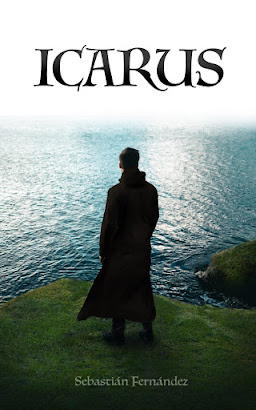The Ballad of Songbirds and Snakes - A Worthy Prequel to the Hunger Games?
"AMBITION WILL FUEL HIM.
COMPETITION WILL DRIVE HIM.
BUT POWER HAS ITS PRICE."
I have to say that I've been expecting this book since it was announced last year. After all, the Hunger Games trilogy is one of my favorites. Did the novel fulfill my expectations or not? I invite you to keep reading to find it out.
In this new exciting work from the acclaimed writer Suzanne Collins, we will travel back in time to meet an 18-year-old Coriolanus Snow—yes, the man that's destined to become the evil president of Panem and villain of the main books—, who is assigned to mentor the girl from District 12 for the 10th Hunger Games.
Some fans got angry when they realized that Snow was set to be the main hero of this new story. It's understandable, Snow is one of the most (if not THE most) hated characters of all the books. Me? I was intrigued to know how was Collins going to address Snow's story. Let me answer one of the questions that may be on your minds right now: Does "The Ballad of Songbirds and Snakes" justify President Snow's actions and state that he always was a good guy? Absolutely no. The intention of this novel is to show us what events turned Coriolanus Snow in the character we all know, and this is actually my first positive remark; the novel gives fans a background to our villain without seeking to justify him. HOWEVER, you will for sure empathize with young Snow at least at some moment if not the whole time.
Second positive remark: we take a look at the first Hunger Games. Personally, I always wondered about how different were the 64th/65th games from the first games. The answer is a lot. Actually, our protagonists constantly explore the way they could improve the games to attract audiences. It is a nice detail that we got to know more about the history behind the Hunger Games and their development. Moreover, you get to see how are the games lived in the Capitol, a point of view that the trilogy lacks.
Third positive point: the author gives readers tons of insight into Coriolanus Snow, which helps us for drawing a thorough picture of the character. Let me explain myself with an example: our protagonist recalls certain experiences from his past whenever he's present in a similar situation. There are occasions, but mentioning them would mean saying spoilers.
I have three more assertive notes to make before moving on to what I didn't like... 1) The story introduces a character that's originally from one of the districts but that now lives in the Capitol, and it's really interesting to see their point of view and dynamic. It was definitely something that we needed to see. How would a person that used to live in a poor area and suddenly moves with rich people react? 2) Readers have a new look at the Capitol, specifically one that shows us the social divisions that surprisingly exist in the city. One might think that everybody in the Capitol is rich. Well, the answer is no. 3) When I started reading the book, I made a list of my predictions for the ending. Now, after reading the whole story I can proudly say that I failed in every single prediction. But let's look at the bright side: the story's not predictable.
Now, let's go to a somewhat negative point. The novel is also divided into three parts. Can you remember which were the three elements of every story? The first element is the beginning, where characters and scenarios are presented. The second one is the middle, where the main conflict begins. Finally, the end is where everything's solved. In general, I noticed the following distribution:
- Part One: Beginning
- Part Two: Middle
- Part Three: Beginning, middle, end
Yes, once you read the book you will realize that the third part is different (even slower) than the other two. More than a continuation of the previous parts, I felt that a new story was beginning. There are new characters introduced, there is a new scenario, there is a new problem, and then all leads to the end of the novel. This is not necessarily a bad thing, but it's definitely worth mentioning when analyzing the book. in my opinion, I would have preferred the third part to keep the rhythm of the two previous ones.
Before I finish this review, I would like to comment that there are, indeed, easter eggs to the original trilogy throughout the book; especially in the last part. How are these easter eggs? I can classify them into two categories: direct and indirect. The direct easter eggs (or hints) are explicit and the same information can be found in the books that tell Katniss' story. The indirect ones are interesting since they're not explicit easter eggs; instead, the information you are given leaves the reader wondering about its importance and relation in the future.
In conclusion, The Ballad of Songbirds and Snakes is undoubtedly a worthy prequel to the Hunger Games, giving the readers an unexpected yet pleasant insight into the life of young Coriolanus Snow. Although being different from the original novels, this book is still enjoyable and is an excellent addition to the saga.
P.S.: If you liked this book, you should be very happy since Lionsgate has confirmed that a film of BSS is currently under development with Francis Lawrence (the director of the last three Hunger Games movies) returning to direct it.
Score: 4.5/5
Favorite Quote: "Who needed wealth and success and power when they had love? Didn't it conquer all?"


Comments
Post a Comment